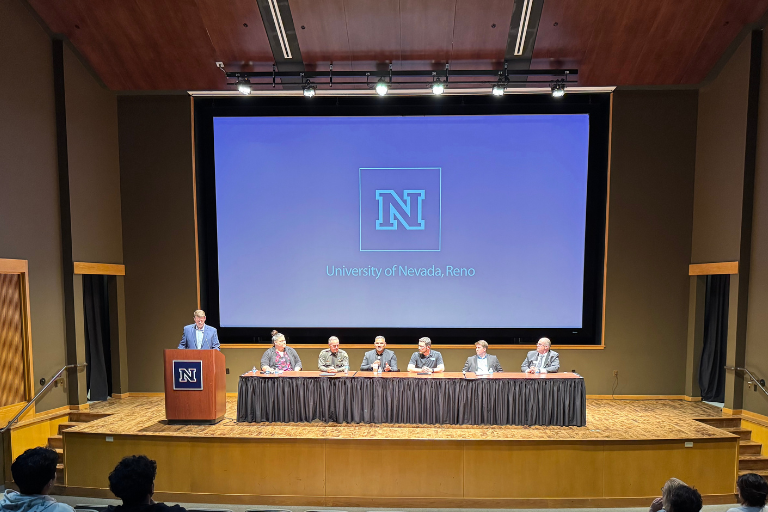Financial Wellness and Community Health: Greater Nevada Credit Union and Local Experts Highlight the Connection and Solutions

Panel Moderated by GNCU Highlights How Early Financial Education and Holistic Support Can Improve Community Health Outcomes
The University of Nevada, Reno and GNCU recently hosted a panel to examine the connection between financial stability and overall health. Participants included representatives from GNCU, local organizations such as the Washoe County Sheriff’s Office, City of Reno, and Community Health Alliance, as well as leadership from the College of Business and the School of Public Health at the University of Nevada. As experts on this topic, panel members recounted their professional observations and personal experiences. The main theme of their discussion explored how financial stress can lead to mental health challenges (including depression and anxiety) and can worsen physical health issues (like heart disease and high blood pressure) when left unsupported.
Key takeaways include:
- Collaborative efforts between regional organizations provide hope for uplifting overall community wellness.
- Financial education from an early age can lead to long-term improvements in community health outcomes.
- Holistic community approaches, like wrap-around services, are crucial in addressing interconnected financial, mental, and physical health issues.
Research shared during the event indicated that individuals with poor financial health are ten times more likely to suffer from mental health problems. Panelists highlighted the critical role of financial education in fostering long-term health improvements within communities, pointing out that introducing financial literacy at an early age could empower individuals to manage their finances effectively, thereby reducing stress and its associated health risks. Speakers discussed how promoting financial wellness within educational settings and community programs could help bridge gaps in mental and physical health outcomes over time.
The panel also underscored the importance of wrap-around services that take a holistic approach to community well-being. By addressing financial and health challenges together, communities can provide comprehensive support that targets both immediate needs and long-term wellness. The conversation pointed to collaborative efforts between financial institutions, healthcare providers, and education systems as essential to improving overall community health.
For more details, read the full Nevada Today article: Panel explores the link between financial stability and mental and physical health | University of Nevada, Reno (unr.edu)

